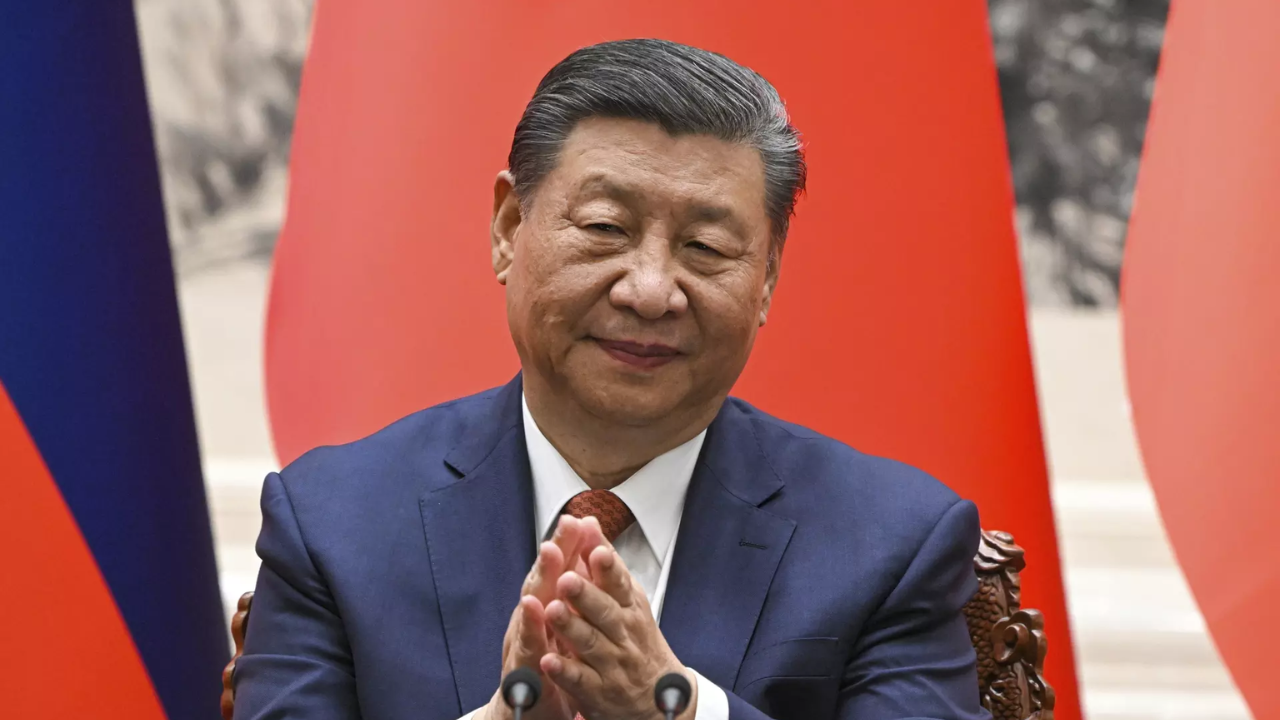NEW DELHI: Chinese President Xi Jinping on Friday invoked the Panchsheel principles agreed upon with India in 1954 as a framework for resolving contemporary geopolitical conflicts and expanding China’s influence in the Global South amid tensions with the West.
At a conference to mark its 70th anniversary of the Panchsheel agreement, Xi said, “The Five Principles of Peaceful Coexistence answered the call of the times, and its initiation was an inevitable historic development.The Chinese leadership in the past specified the Five Principles in their entirety for the first time, namely, ‘mutual respect for sovereignty and territorial integrity’, ‘mutual non-aggression’, ‘mutual non-interference in each other’s internal affairs’, ‘equality and mutual benefit’, and ‘peaceful coexistence’.”
“They included the Five Principles in the China-India and China-Myanmar joint statements which jointly called for making them basic norms for state-to-state relations,” he added in front of former Sri Lankan President Mahinda Rajapaksa and several political leaders and officials from various countries closely associated with China over the years.
“The five principles of peaceful coexistence were born in Asia but quickly ascended to the world stage. In 1955, more than 20 Asian and African countries attended the Bandung Conference”, Xi further recalled in his address.
“The Five Principles have set a historic benchmark for international relations and international rule of law,” he added.
The Panchsheel pointers were first formally enunciated in the Agreement on Trade and Intercourse between the Tibet region of China and India signed on April 29, 1954, according to the Ministry of External Affairs.
The five principles formed part of the legacy of the then Prime Minister Jawaharlal Nehru and his Chinese counterpart Zhou Enlai in their unsuccessful attempt to find a solution to the complicated boundary issue.
Xi’s advocacy comes as he begins an unprecedented third term as China’s President. Under his tenure, China has actively promoted initiatives like the belt and road infrastructure investment scheme to enhance its global influence, though facing allegations of debt-trap diplomacy from some recipient nations.
Confronting strategic rivalry with the US and Europe, Beijing has prioritized consolidating ties across Asia, Africa and Latin America under the “Global South” banner.
At a conference to mark its 70th anniversary of the Panchsheel agreement, Xi said, “The Five Principles of Peaceful Coexistence answered the call of the times, and its initiation was an inevitable historic development.The Chinese leadership in the past specified the Five Principles in their entirety for the first time, namely, ‘mutual respect for sovereignty and territorial integrity’, ‘mutual non-aggression’, ‘mutual non-interference in each other’s internal affairs’, ‘equality and mutual benefit’, and ‘peaceful coexistence’.”
“They included the Five Principles in the China-India and China-Myanmar joint statements which jointly called for making them basic norms for state-to-state relations,” he added in front of former Sri Lankan President Mahinda Rajapaksa and several political leaders and officials from various countries closely associated with China over the years.
“The five principles of peaceful coexistence were born in Asia but quickly ascended to the world stage. In 1955, more than 20 Asian and African countries attended the Bandung Conference”, Xi further recalled in his address.
“The Five Principles have set a historic benchmark for international relations and international rule of law,” he added.
The Panchsheel pointers were first formally enunciated in the Agreement on Trade and Intercourse between the Tibet region of China and India signed on April 29, 1954, according to the Ministry of External Affairs.
The five principles formed part of the legacy of the then Prime Minister Jawaharlal Nehru and his Chinese counterpart Zhou Enlai in their unsuccessful attempt to find a solution to the complicated boundary issue.
Xi’s advocacy comes as he begins an unprecedented third term as China’s President. Under his tenure, China has actively promoted initiatives like the belt and road infrastructure investment scheme to enhance its global influence, though facing allegations of debt-trap diplomacy from some recipient nations.
Confronting strategic rivalry with the US and Europe, Beijing has prioritized consolidating ties across Asia, Africa and Latin America under the “Global South” banner.

